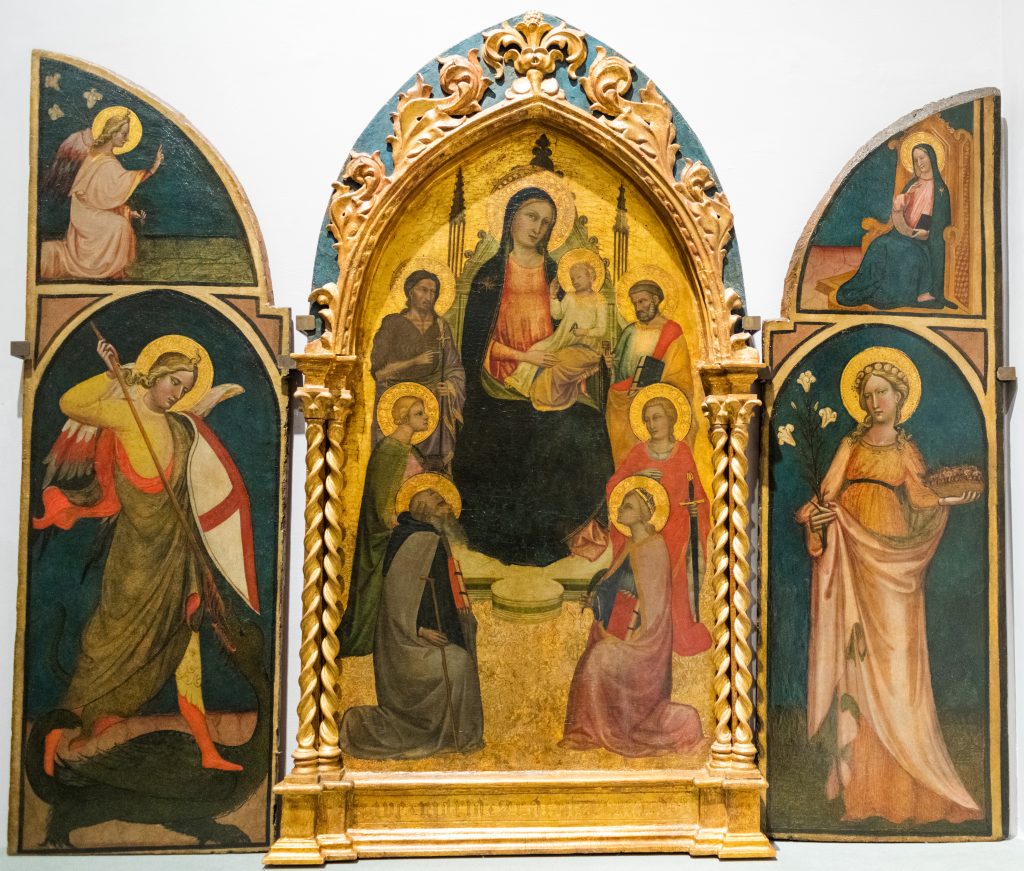Dorothy of Cappadocia
Virgin Martyr of the 3rd Century
Dorothy was a virgin martyr who was born in Rome in the late 3rd century CE during a time of Christian persecution by the Roman Emperor Diocletian. She convinced her parents and two sisters to flee to Caesarea in Cappadocia (modern day Turkey). According to tradition, she continued in her strong faith and refused to marry the provost Fabricius who pursued her, maintaining that her virginity was for her spouse Jesus Christ. Incensed by her refusal, Fabricius ordered Dorothy to be placed in a barrel of burning oil; however, she was not harmed. She was then sent to prison without food or drink for nine days, but was fed by angels. Seeing that she continued to be unharmed, Fabricius offered her freedom in exchange for her worshiping idols. Not only did Dorothy refuse, but angels struck down the pillar with the idol that had been constructed.

Hagiography – Dorothy was ordered to be further tortured with iron hooks and fire brands, and beaten viciously. However, she continued to be healed and made whole by God every time she appeared before Fabricius, and more and more people converted to Christianity after witnessing the miracles of her recovery. Fabricius ordered her sisters Christine and Celestine (sometimes called Christina and Callista) to visit Dorothy in prison and implore her to deny her faith. Dorothy not only refused, but persuaded her sisters to stand firm in the faith, resulting in their own martyrdom after being bound together and burned.
Dorothy was ultimately ordered to be executed by beheading in 311 CE. On the way to her execution, she was heckled by Theophilus, a pagan and scribe, who scornfully asked her to bring him roses and apples from her “bridegroom in Paradise.” Miraculously, a small boy appeared to Dorothy carrying a basket of roses and apples, and Dorothy instructed the boy to bring the basket to Theophilus sometime after her death. Upon Theophilus receiving the visit from the boy with the flowers and fruit, he himself converted to Christianity and was also subsequently tortured and martyred. Dorothy and Theophilus are often mentioned together.
Dorothy is commonly depicted in art with golden hair and a crown or wreath of flowers on her head, often accompanied by a young, golded-haired boy. She is frequently holding a basket of flowers (often roses) and/or fruit (often apples).
Dorothy’s feast day is February 6 (the day of her martyrdom), and she is the patron saint of horticulture, gardeners, florists, brides, and brewers.
